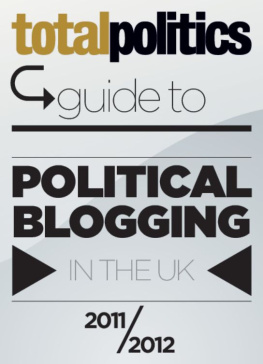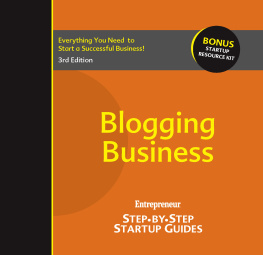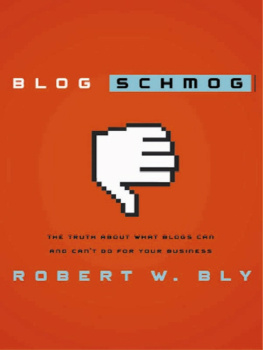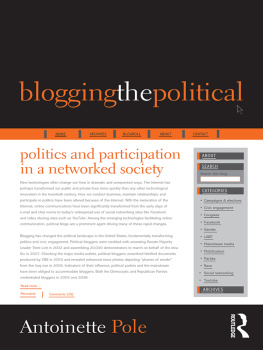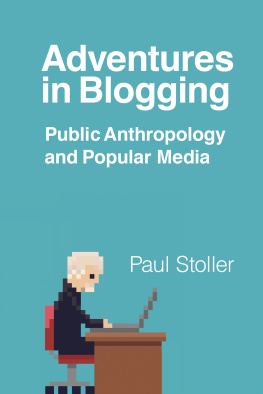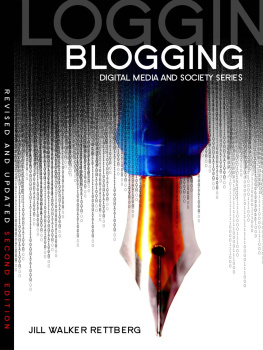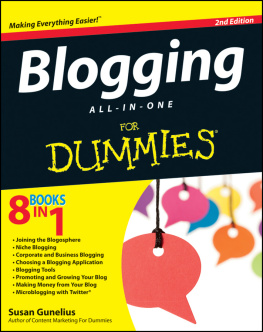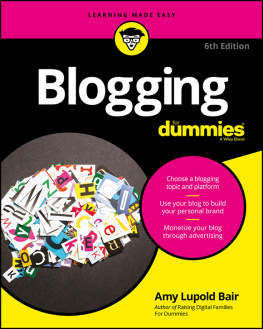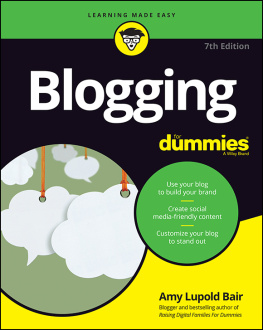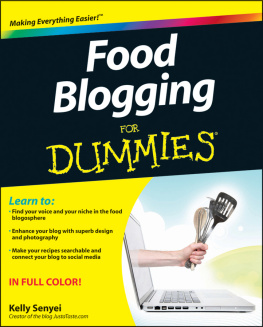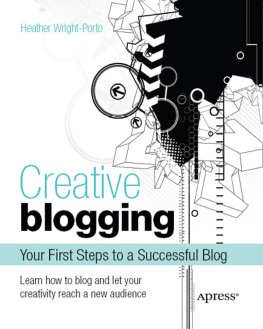Welcome to the sixth edition of the Guide to Political Blogging in the UK. For the first time, the guide will be available only in digital form, a reflection of the way that journalism and publishing has changed in the last year. It seems entirely appropriate that you will be reading this online or on your Kindle or iPad rather than in a physical book after all, the political blogosphere has always been about pushing boundaries and changing to respond to demand while more traditional forms get left behind.
In the past year, weve continued to see the lines blur between the blogosphere and mainstream media. A wide variety of political bloggers are now regularly in demand as commentators for broadcasters, and whether something is of interest to the blogosphere has become a major test for a political story or issue. Mainstream media outlets have responded to this trend by continuing to embrace blogging as a now-crucial part of how political journalism works. As Nik Darlington highlights in his chapter assessing the Conservative blogosphere, outfits like the Daily Telegraphs blogging offering are able to assemble an impressive array of political commentators, supported by the resources of a national newspaper. They are, and will continue to be, a force to be reckoned with.
Lobby journalists are now often expected to maintain an active blog as well as writing for their print publication. Its notable that Lobby stalwarts who have really embraced this change, like the Guardians Andrew Sparrow and PoliticsHome editor Paul Waugh, once again did very well in this years Total Politics blog awards, appearing in the top twenty alongside the long-established independent group blogs like ConservativeHome and Left Foot Forward. You can read more about the trend towards consolidation and the rise of group blogs in the commentary on this years blog award results, and see the results of the poll for yourself at the end of this book.
Translating online campaigning and blog readership into tangible political action has been a big trend of 2011, from UK Uncut to the Rally Against Debt to the Occupy movement. In his chapter, Dylan Sharpe, who was the head of press for the No to AV campaign during 2011s referendum, examines this trend and lays out the limits of online campaigning for producing results at the ballot box. This doesnt mean that campaigning blogs cant make significant inroads on the public perception of a cause, as Samira Shackle explains in her chapter, in which she outlines how a campaign can use political blogs to their advantage. Mark Ferguson, editor of LabourList, also tackles this issue in his state of the Labour blogosphere chapter, charting the way in which it has eschewed the tendency in opposition to cluster around a handful of big-traffic sites and rather disseminate information and opinion through a vast network of more niche-interest blogs.
The most striking thing about this years blog poll, though, was the relative lack of new entries. There were only two new entries in the top twenty. As blogs consolidate and pool resources, it is now very difficult for an unknown blogger starting out on their own site to break into the upper echelons of the blogosphere. However, with the advent of sites like the Huffington Post and Iain Dales new megablog Dale and Company, there are platforms available for newcomers to start out in an environment that will provide support and a higher chance of recognition.
Having said that, theres no doubt that the blogosphere continues to go from strength to strength. As the chapters on the state of particular areas of the blogosphere demonstrate, strong and diverse communities exist online, reflecting all aspects of political discourse. The writers who have contributed are all superb examples of the high quality of commentary to be found online, and I hope you find what they have to say as interesting as Ive found it to commission and edit.
Heres to another outstanding year of blogging!
Caroline Crampton
Westminster, October 2011
Grace Fletcher-Hackwood
I was first introduced to Twitter in early 2009 by a friend from university who had started to use it for his local Labour Party. I took some persuading isnt it just Facebook with nothing but the statuses? but he convinced me. The same guy reckons he also convinced Laurence Durnan (of the Political Scrapbook blog) to start blogging. Creating monsters is apparently his thing.
I started a blog back in 2008 because, to be honest, everyone else seemed to have one. At first I blogged just for the sake of it about anything that happened to catch my eye, in Manchester or even on TV. But I started to enjoy it when I started blogging angry. Back then I was working in some of Manchesters finest call centres and my political activity was restricted to delivering the odd leaflet. When things made me angry, I didnt get much of a chance to talk about it. So I blogged it. Margot James said that gay people have a duty to vote Tory because they get less out of the tax system by not having families? 1,500-word rant. Helen Mirren described her own rape as a misunderstanding? 1,500-word rant. Someone slagged off Harriet Harman? 1500-word rant. Someone looked at Harriet Harman funny? 1,500-word rant. (Ive had a look back through my own archives: for a while there I seemed to have been trying to carve out a niche as a Harriet Harman fanblogger.)
But not everything makes even me angry enough or happy enough for a 1,500-word rant. I stayed up all night with my laptop in front of the TV to watch the 2008 US presidential election, and so there are a handful of celebratory blog posts that are only a few words long. Once Id been talked into Twitter, therefore, it was an obvious death knell for my ability to blog every day. Why wait until youre home in front of your laptop to publicise, say, an Oxfam campaign, with an inevitably dry blogpost maybe 20 people will read, when you can reach more people with a retweet? Why bother with a what Ive been up to this week post to show off about local events in Manchester when youve been tweeting where you are and what youve been doing all week anyway? And why devote 1,500 words to ranting about the Daily Mail when you can say everything you need to say in 140 characters?
I spent my first year on Twitter enjoying the novelty of following and being followed by political celebrities John Prescott, Alastair Campbell, Kerry McCarthy. But as more and more political activists from my own area got on board with Twitter, we started to look for ways to translate the tweets into offline campaigning.
The master of this is my fellow Manchester Labour councillor Kevin Peel. Together we started the Twitter phenomenon of #mobmonday using Twitter to coordinate a mass weekly phonebank for MPs and PPCs with a Twitter presence and Kev has since gone on to use his Twitter contacts to organise the Tweekender event for the Oldham East and Saddleworth by-election, and a similar event for his own local election campaign.
Its also worth noting that the relationship between online and offline activity works both ways. Having spotted a fairly standard press release about a small dance festival in the Express & Star, a local paper in Wolverhampton, the local MP Emma Reynolds, wrote to my teenage sister, who was helping to run the festival, to congratulate her and wish her luck. As a PS, she invited my sister to add her on Facebook and Twitter. That was no doubt five minutes work for someone on work experience in the constituency office but to my mind its a clever use of five minutes. Theres no point, particularly as an elected representative, setting up social networking accounts unless youre also going to identify, and make an effort to engage with, people with the connections to bring you in some relevant followers.

